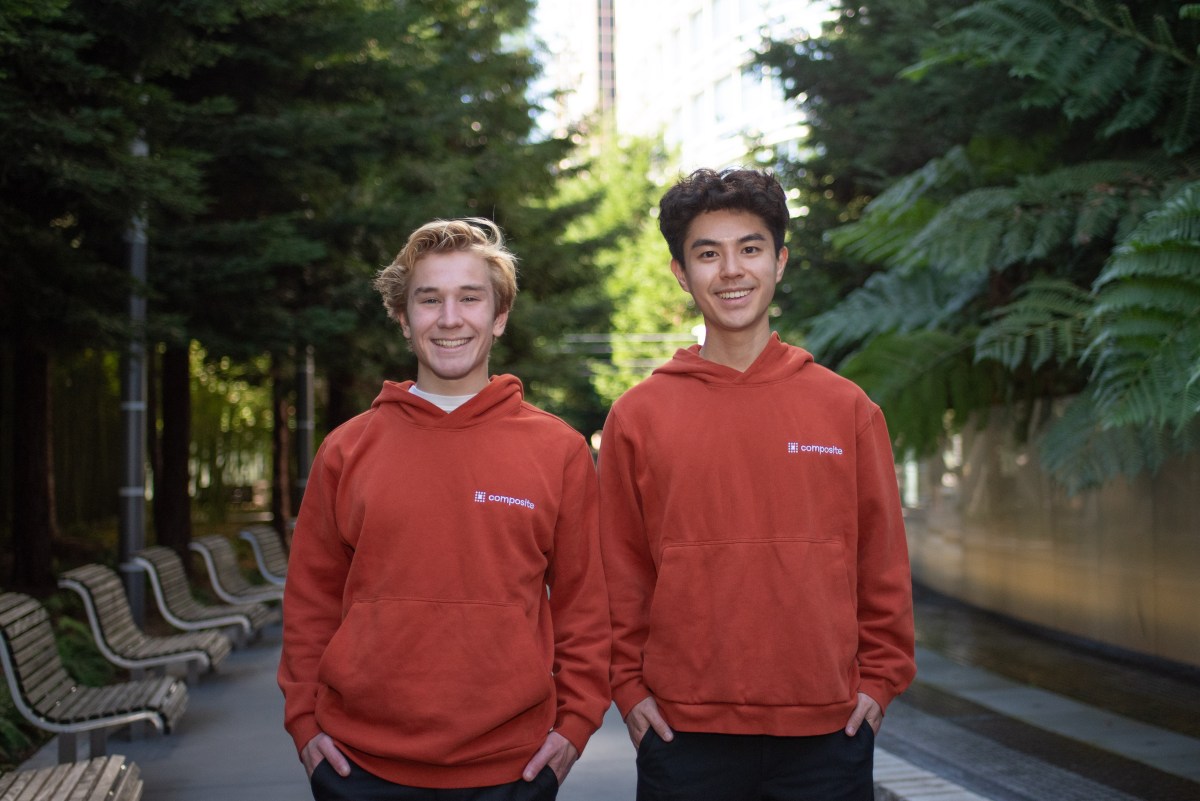The central pitch of AI browsers like Perplexity’s Comet, Opera’s Neon, and The Browser Company’s Dia is that they’ll help you complete daily tasks more efficiently. While these are agents that are limited to one browser, Composite aims to build an agentic solution that helps professionals with their tasks, regardless of which browser they use.
The startup was started earlier this year by Yang Fan Yun and Charlie Deane. Yun is a former product manager at Uber, while Deane founded a company selling server proxies. When he was at Uber, he realized that a lot of people around him were doing grunt work in their browsers.
“I saw people in different roles, including marketing, sales, recruitment, and security engineers, do a lot of tedious work in their browsers. I felt that this stops them from putting their education and skill to full use, and I wanted to automate this work easily for them,” Yun told TechCrunch over a call about Composite’s core problem statement.
The company said today that it has raised $5.6 million in seed funding in a round led by Nat Friedman and Daniel Gross’s venture firm NFDG, with participation from Menlo Ventures and Anthropic’s Anthology Fund.

Composite offers its solution for Macs at the moment, and setup is very easy, as you just need to install the browser extension for agents to make use of that browser. You can issue different commands across tools that you use on the web, and Composite will get the work done. For instance, it can help you go through your Jira backlog for bugs using relevant documents, leave comments on high-priority bugs, and also mark duplicate bugs as resolved.
The startup says security engineers can use it for looking up candidates across sites and draft personalized emails, security engineers can create vulnerability tickets based on alerts, and marketers can pull reports from different sources to create short insights reports.
Yun said that other AI browsers and agents from companies like OpenAI and Perplexity are solving for non-professional needs, such as helping with shopping and booking tickets.
Techcrunch event
San Francisco | October 27-29, 2025
“We are an ideal tool for professionals who want to set their workflows without having technical knowledge. Composite is very good at atomic actions like clicking on different elements of the website or typing in boxes, and that gets the job done for our users,” he said.
He added that because the agents work in browsers where you are already logged on to services, it doesn’t need connectors and can work across different sites.
The tool already suggests some tasks based on users’ patterns. But in the coming months, the company is aiming to develop a better mechanism to automatically surface tasks that Composite can do on the user’s behalf. The startup is also working on a way to schedule tasks for recurring usage.
The startup said that because it doesn’t need users to switch browsers, allows admins to restrict tools, execute tasks locally, and also lets users define what websites are out of bounds, its tools are better suited for professionals.
There is a lot of competition in the area of having agents do work for professionals. Companies like OpenAI that use their own browser to take actions, Notion relies on users’ context within the app, combined with other connectors. General Catalyst-backed Highlight wants to use your whole desktop as context. A bunch of startups are working on a narrower context, like a spreadsheet. A lot of these startups are in early stages, and there are questions around AI agents’ efficiency in the long term. While investors are ready to put their money, the startups working in this area will have a lot to prove to justify it.
Matt Kraning, a partner at Menlo Ventures, is confident in Composite’s ability to stand out. He told TechCrunch over a call that the tool was very intuitive to use for professionals without being overtly technical.
“Composite handles different modalities and sites very well, and it is designed with professional use cases in mind. The tool is well-suited for people who might have to go through a lot of tasks in a day across a range. of functions,” he said.
Ivan covers global consumer tech developments at TechCrunch. He is based out of India and has previously worked at publications including Huffington Post and The Next Web.
You can contact or verify outreach from Ivan by emailing im@ivanmehta.com or via encrypted message at ivan.42 on Signal.




